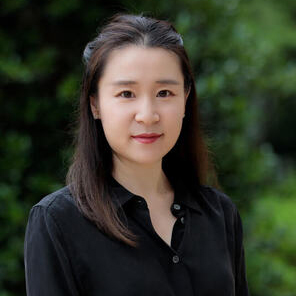
EDUCATION
| Degree | Area of Study | University |
|---|---|---|
| Ph.D. | Educational Psychology | University of Kansas |
| M.A. | Education | University of Durham |
| B.A. | English and International Trade | Dalian University of Foreign Languages |

AWARDS AND HONORS
| Year | Award |
|---|---|
| 2018 | Research Scholarship, University of Kansas |
| 2016-2017 | Scholarship of School of Education, University of Kansas |
| 2011 | Citibank Future Talent Award, Citibank |

AREAS OF EXPERTISE
Motivation: self-determination theory, internalization, and basic needs
Emotion: achievement and cognitive emotions
Psychoeducational Intervention

HIGHLIGHTED PUBLICATIONS
- Wang, Y., Wang, H., Wang, S., Wind, S. A., & Gill, C. (2024). A systematic review and meta-analysis of self-determination-theory-based interventions in the education context. Learning and Motivation, 87, 102015.
- Wang, Y., Xia, M., Guo, W., Xu, F., & Zhao, Y. (2023). Academic performance under COVID-19: The role of online learning readiness and emotional competence. Current Psychology, 1-14. https://doi.org/10.1007/s12144-022-02699-7
- Wang, Y. (2021). Adding the culturally specific ingredients: the Chinese and American models of learning persistence, including learning beliefs, choice, and the internalization of learning motivation. Social Psychology of Education. https://doi.org/10.1007/s11218-021-09672-5
- Wang, Y. & Wind, S. A. (2020). Psychometric evaluation of a new internalization of learning motivation (ILM) scale. Current Psychology, 1-18. https://doi.org/10.1007/s12144-020-00909-8

PROFESSIONAL MEMBERSHIPS / ACTIVITIES
Dr. Wang has served as a consultant for various educational technology companies, advising on the development of tools that align with motivational theories and enhance student learning outcomes.

BIOGRAPHY
Dr. Yurou Wang is passionately dedicated to empowering disadvantaged and low-motivation students, aiming to bridge gaps in educational outcomes through her innovative research and practical interventions. Her academic work is centered on self-determination theory, achievement emotions, and psychoeducation interventions, all of which are crucial for understanding and enhancing student motivation and engagement.
In her quest to push the boundaries of educational psychology, Dr. Wang has integrated cutting-edge technology into her research by establishing the Micro-facial Expression Tracking (MET) Lab. This pioneering lab utilizes advanced facial recognition technology to capture and analyze students’ micro-expressions, providing insights into the intricate relationship between emotional states and learning behaviors. Through a series of carefully designed experiments, the MET Lab seeks to uncover how emotions influence students’ engagement, retention, and overall academic performance.
Currently, Dr. Wang is expanding her impact beyond the laboratory through community-engaged research focused on teacher training and psychoeducation interventions. By collaborating with educators and community stakeholders, she aims to develop evidence-based strategies that can be implemented in diverse educational settings, ensuring that all students have the support they need to thrive. Her work not only contributes to academic scholarship but also has practical implications for creating more inclusive and effective learning environments.
